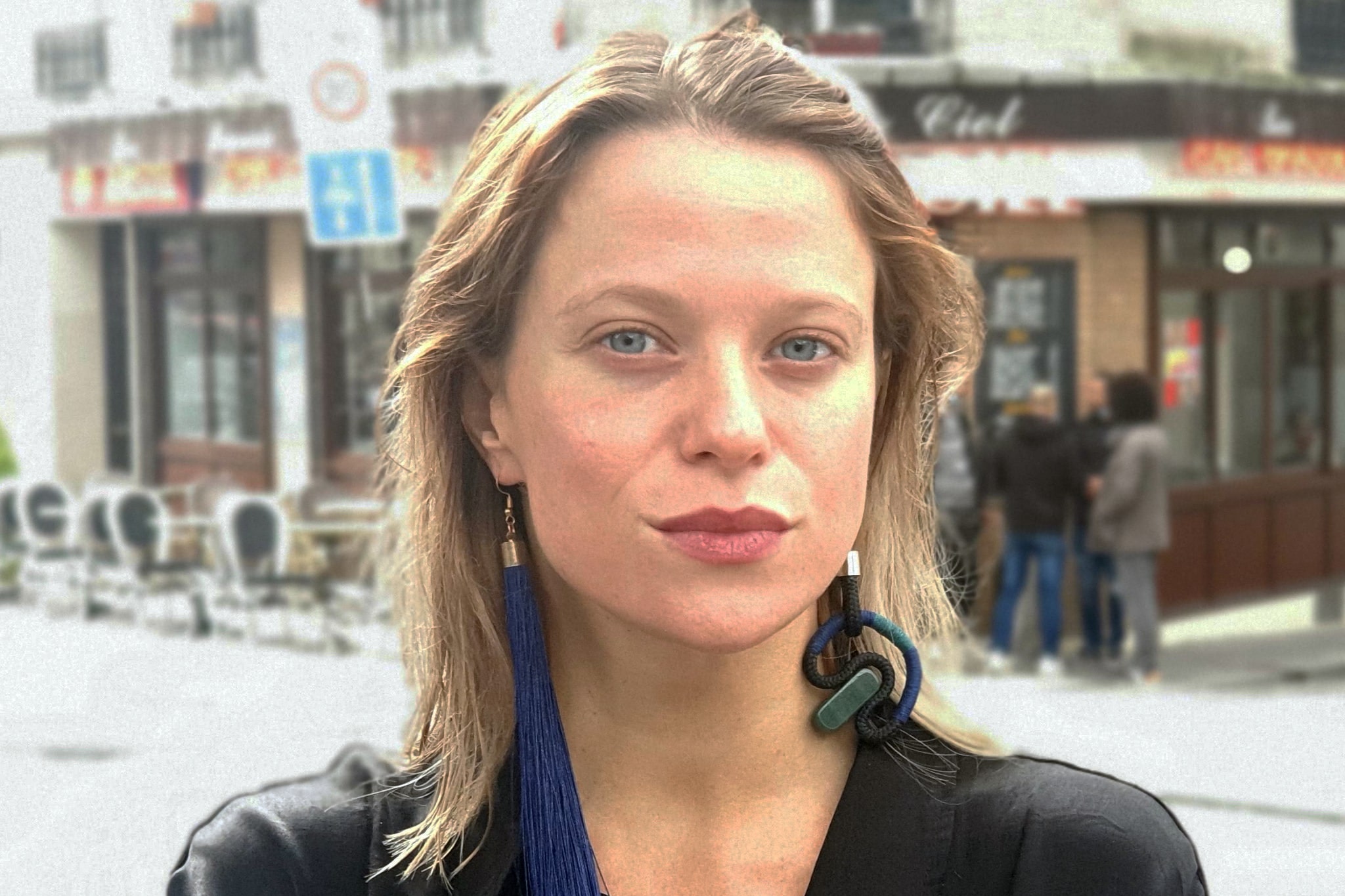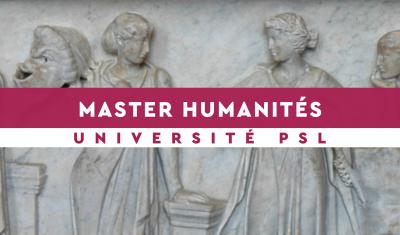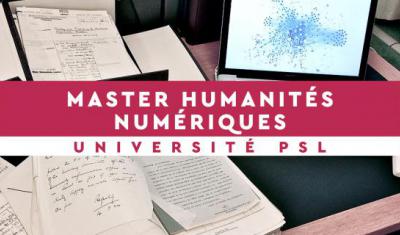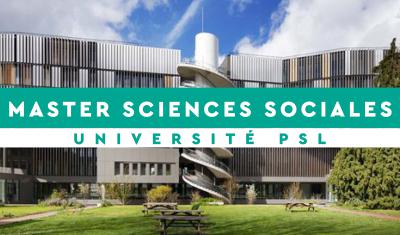“For years, I had been wondering what sparks a desire to resist”
Micol, an active and engaged student, walks us through the path that led her to the Master’s in Philosophy offered École Normale Supérieure – PSL with the involvement of École Pratique des Hautes Etudes – PSL and Observatoire de Paris – PSL. She is drawn to philosophy as a way to learn, question, share, and act.

From Sassari and Trieste to Washington, Paris, Chicago, London, and Johannesburg, Micol is a curious, passionate learner who has taught and studied all around the globe.
As a high school student in Sassari, Sardinia, she earned her International Baccalaureate at the United World College of the Adriatic, an international school with locations worldwide whose name serves as a passport for graduates to attend prestigious campuses. For Micol, that meant earning a BS in Foreign Service at Georgetown University (USA) and participating in an exchange program with Science Po Paris to explore other topics, other campuses, and other forms of education. At the time, she was enthusiastically studying law, but she could already tell that something was missing.
“During my time at Science Po Paris, I decided to work on the sociology of violence. While I was there, I also had the opportunity to listen to philosophers such as Marc Crépon and Frederic Worms at ENS – PSL and to take a seminar with Hélène Cixous. That was my introduction to French philosophy, and it was a revelation. When I came back to Georgetown, I was determined that I wanted to and needed to study philosophy. So I added the discipline into my studies as a double major.”
Back on the Georgetown campus, Micol looked to philosophers Terry Pinkard and Quill R Kukla to help fashion her thinking. She witnessed the growing strength of the Black Lives Matter movement and the 2015 Baltimore protests, followed by the beginnings of #MeToo. Wanting to understand, she applied her perspective as a philosopher in training to the world around her.
“The classes I took during that period and the talks I attended raised new questions for me. ‘What is a desire?’ ‘What sparks a desire to resist?’ These questions stayed with me for a long time; they struck a chord with me and with current events. My discovery of French philosophy gave me the basic tools to explore and try to understand them.”
She decided to enroll in the Modern European Philosophy MA degree offered by Kingston University London, a joint diploma with Université Paris 8. Her classes and lectures there led her to philosophers Stella Sandford, Nadia Yala Kisukidi, and Catherine Malabou, who expanded her thinking.
The, Micol chose to attend ENS – PSL, and she was admitted to the Master's degree in Philosophy as an international selection student. She defended her second-year Master’s thesis under the supervision of Marc Crépon, whose research intrigued her. At École Normale Supérieure – PSL, she took full advantage of the scientific and cultural environment.
“It was an incredible experience. I still remember the unfettered freedom and intellectually stimulating environment. The philosophy department gave us the opportunity not only to host many lectures, but also to write and stage a play to open an international symposium on non-violence. That grew into a profound passion for theater: I went so far as to form a theater company, Les 3 chambres, along with my ENS – PSL colleague Katie Ebner-Landy, writer Angelo Vannini, and musical composer Sacha Carlson. The play was initially performed in La Rotonde at ENS – PSL and then later at the Pantheon in Paris as part of an anti-racist festival. Other plays have been written and performed in Paris and New York. I’m still realizing just how much I learned from the experience. Writing and putting on a play was a very freeing collective effort that helped open my mind to new philosophical questions: Who do we write with? Who write within me? What language do we speak?”
The ENS was an incredible experience. I still remember the unfettered freedom and intellectually stimulating environment.
The following year, Micol joined the Philosophy department in Johannesburg as a lecturer in ethical philosophy for undergraduate students. The position offered a new environment and a new context, and it led to the discovery of a new passion.
“I had taught before and liked it, but my time at the University of Johannesburg was a revelation (another one!). My students weren’t philosophers. They were studying finance and accounting, and there was no guarantee that they would be interested in what I had to say! I had to convey the meaning of the texts and teach them how to think like philosophers. Together, we asked questions about everyday life, which, in Johannesburg perhaps even more than in other places, is loaded with structural violence. Because of that, I didn’t have to spend any time persuading my students that ethics is a necessary and useful field, as I often do. Our discussions were extremely rich, and I learned a great deal from my students.”
After Johannesburg, Micol returned to the United States to study for a year at the University of Chicago. She currently teaches philosophy for PSL’s CPES Multidisciplinary Undergraduate degree and is applying to PhD programs in the United States. She would like to continue the research work she began under the supervision of Marc Crépon, delving into the emergence of a certain genealogy of the concept of race starting with the writings of Kant, Nietzsche, Adorno, Deleuze, Foucault, and Derrida.
“I’m interested in the way a certain theoretical violence emerges and becomes translated to day-to-day bodily violence. I’m studying the use of the quasi-transcendental argument in the Kantian construction of the concept of race and applying it to the contemporary debate surrounding the phenomenology and epistemology of whiteness. In other words, I’m trying to understand how a gaze becomes classifying, prescriptive, blind, and violent. And how is it incorporated? This line of thinking has led me to reflect on issues of sexual ethics, and I’m currently trying to orient my work to rethink desire phenomenologically as reciprocity, asymmetry, and opacity.”
Micol has written a collection of poems in her native language entitled Ho delle vene molto complesse (translation: I have very complex veins) that addresses the relationship between the subject and family, national, and colonial history. It is pending publication.
Her interest in these exciting topics, central to the questions raised by the 21st century, makes Micol the perfect embodiment of a new, engaged generation for whom philosophy is a tool for reflection that offers a means to take action.



